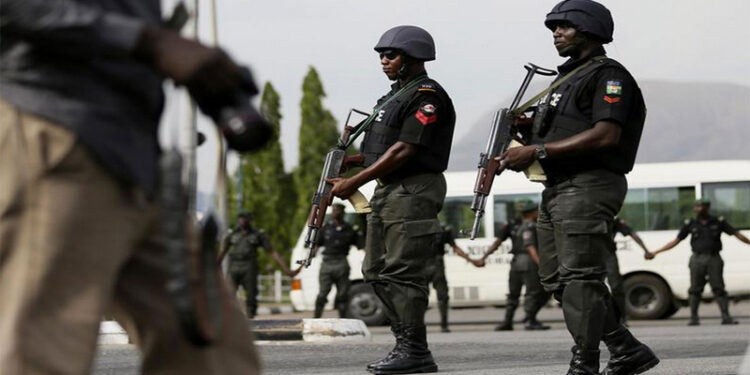State police commands across Nigeria have deployed security personnel to critical flashpoints as the organizers of the #FearlessOctober1 protest insist on going ahead with their planned demonstration on Independence Day. The protest, which follows a similar action in August, is aimed at decrying the economic hardship caused by President Bola Tinubu’s policies, including fuel price hikes, naira devaluation, and rising inflation.
Protest leaders, including rights activist Omoyele Sowore, plan to gather at key locations such as Eagle Square in Abuja and the Ikeja Under Bridge in Lagos. They aim to highlight issues like hunger, insecurity, government wastefulness, and electoral reforms. Sowore declared the organizers were “fully prepared” and would begin their march at 7 a.m. on October 1.
Security Measures
Police in various states have taken proactive measures to prevent unrest. In Niger, Kaduna, and Kano, security forces were stationed at strategic points, while police in Lagos and Ogun states met with local stakeholders, including labor unions and youth organizations, to prevent the protests from being hijacked by miscreants.
The Niger State Police Command, in particular, deployed officers to patrol key locations, while Kano police engaged with protest leaders, urging them to reconsider their plans due to potential risks. Kaduna’s police command emphasized the ban on public processions, but also confirmed heightened deployments across the state.
In Kogi, Commissioner of Police Bethrand Onuoha advised protesters to reconsider their plans and allow the government more time to address economic challenges. However, he affirmed the protesters’ right to peaceful demonstrations while cautioning against possible hijacking by hoodlums.
Tension Between APC and Opposition
The All Progressives Congress (APC) warned opposition parties against inciting Nigerians into protest, accusing them of promoting chaos to disrupt governance. APC National Publicity Director, Bala Ibrahim, urged Nigerians to be patient with President Tinubu’s reforms, warning that protests could lead to further instability.
In contrast, opposition leaders, including those from the Peoples Democratic Party (PDP) and Labour Party, refuted the claims, asserting that the protests were a result of widespread dissatisfaction with the government’s policies. PDP National Deputy Publicity Secretary Abdullahi Ibrahim criticized the APC for failing to alleviate the economic crisis, stressing that Nigerians are motivated by their frustrations, not opposition influence.
As tensions rise, the police have emphasized their commitment to maintaining peace and ensuring that any protest does not spiral into violence.
























